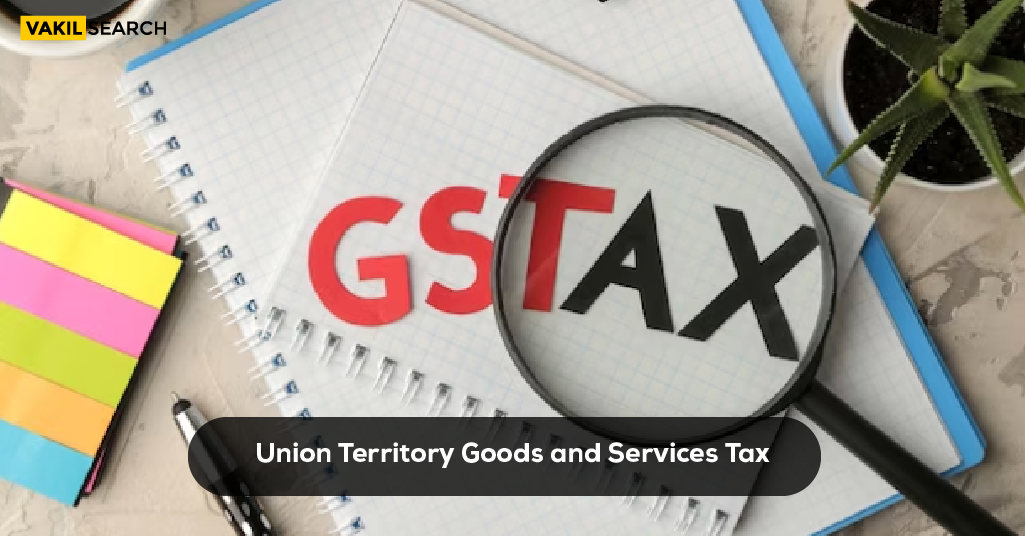UTGST is a tax applicable in Union Territories under India's GST system. It plays a significant role in revenue collection for Union Territories and affects businesses operating in these regions. Understanding UTGST is crucial for compliance and operations in Union Territories.
What is UTGST?
UTGST stands for Union Territory Goods and Services Tax. It is a state-level tax levied by the Central Government on the intra-supply of goods and services within the Union Territories of India. UTGST is similar to State GST (SGST) but is applicable in Union Territories that do not have their own legislature.
UTGST Applicability
UTGST is applicable to the following Union Territories of India:
- Andaman and Nicobar Islands
- Chandigarh
- Dadra and Nagar Haveli
- Daman and Diu
- Lakshadweep
Why Union Territory GST Is Implemented?
The introduction of UTGST was primarily driven by the need to streamline the taxation system and ensure uniformity in tax rates across the country. Since Union Territories do not have their own legislatures, they cannot enact their own GST laws. UTGST, therefore, serves as a substitute for SGST in these regions.
UTGST State List
The UTGST state list is the same as the SGST state list, which includes around 1,400 goods and services. The rates for UTGST are also aligned with the SGST rates for the respective goods and services.
Need for Union Territory Goods and Services Tax
The implementation of UTGST was essential for several reasons:
- Uniformity in Tax Rates: UTGST ensured that there was uniformity in tax rates across the country, eliminating any tax arbitrage opportunities.
- Ease of Doing Business: UTGST simplified the taxation system for businesses operating in Union Territories, reducing compliance costs.
- Revenue Generation: UTGST provided a significant source of revenue for the Central Government and the Union Territory governments.

UTGST Rates
The rates for UTGST are determined by the GST Council and are aligned with the SGST rates for the respective goods and services. The rates vary from 0% to 28% depending on the nature of the goods or services.
UTGST Example
Let’s consider an example of UTGST calculation:
- A business in Chandigarh sells furniture worth ₹1,00,000 to a customer within Chandigarh.
- The applicable SGST rate for furniture is 12%.
- So, the UTGST payable would be ₹12,000 (12% of ₹1,00,000).
Benefits of Implementing Union Territory Goods and Services Tax
The implementation of UTGST has resulted in several benefits:
- Simplified Tax Structure: Union Territory Goods and Services Tax simplified the tax structure, making it easier for businesses to understand and comply with tax regulations.
- Reduced Tax Evasion: UTGST reduced the scope for tax evasion by creating a unified tax system with a centralized tax administration.
- Increased Revenue: UTGST has generated significant revenue for the Central Government and the Union Territory governments, which can be used for infrastructure development and social welfare programs.
List of Union Territories for the Applicability of UTGST
UTGST applies to the following Union Territories of India:
- Andaman and Nicobar Islands
- Chandigarh
- Dadra and Nagar Haveli
- Daman and Diu
- Lakshadweep
How is the UTGST levied and collected?
UTGST is levied and collected by the Central Government on the intra-supply of goods and services within the Union Territories of India. The Central Government has delegated the power of administration and collection of UTGST to the respective Union Territory administrations.
The UTGST is levied based on the taxable value of the goods or services supplied. The taxable value is generally the market value of the goods or services, but there are certain exceptions.
The UTGST is collected at the point of sale by the registered dealer. The dealer is required to collect the tax from the customer and remit it to the government.
Exemption from UTGST
There are certain exemptions from UTGST, such as:
- The supply of goods and services to the Central Government, a state government, or a local authority
- The supply of goods and services that are exported outside India
- The supply of goods and services that are zero-rated or tax-free
Documents Required for UTGST Registration
The following documents are required for GST registration online:
- The PAN card of the applicant
- The Aadhaar card of the applicant
- Proof of address of the applicant
- Proof of business registration
- Bank account details
- Cancelled cheque
Compliance with UTGST
All registered dealers are required to comply with the UTGST provisions. This includes:
- Filing returns on a regular basis
- Paying tax on time
- Maintaining proper records
- Being audited by the tax authorities
Input Tax Credit under UTGST
Registered dealers are entitled to claim input tax credit under gst on the tax paid on inputs used in the taxable supply of goods or services. This ITC is used to reduce the tax liability on the output supply.
Common Challenges and Misconceptions about UTGST
Some of the common challenges faced by businesses in complying with UTGST include:
- The complexity of the UTGST law and regulations
- The lack of awareness about UTGST among businesses
- The difficulty in obtaining input tax credit
- The high cost of compliance
Some of the common misconceptions about UTGST include:
- UTGST is only applicable to businesses that sell goods
- UTGST is a complex tax that is difficult to understand
- UTGST is a burden on businesses
- UTGST is not effective in preventing tax evasion
FAQs on UTGST
What exactly is UTGST?
UTGST stands for Union Territory Goods and Services Tax. It is a state-level tax levied by the Central Government on the intra-supply of goods and services within the Union Territories of India. UTGST is similar to State GST (SGST) but is applicable in Union Territories that do not have their own legislature.
How does UTGST differ from SGST and CGST?
CGST (Central Goods and Services Tax) is levied by the Central Government on the inter-state supply of goods and services, while SGST (State Goods and Services Tax) is levied by state governments on the intra-state supply of goods and services. UTGST is also levied on the intra-state supply of goods and services, but it is applicable in Union Territories that do not have their own legislature.
In which regions is UTGST applicable?
UTGST is applicable in the following Union Territories of India:
- Andaman and Nicobar Islands
- Chandigarh
- Dadra and Nagar Haveli
- Daman and Diu
- Lakshadweep
- Ladakh
What happens if I supply goods or services from a state to a Union Territory?
If you supply goods or services from a state to a Union Territory, you will be liable to pay either SGST or UTGST, depending on the Union Territory you are supplying to. For example, if you supply goods or services from Maharashtra to Chandigarh, you will be liable to pay UTGST.
How frequently do I need to file UTGST returns?
The frequency of filing UTGST returns depends on your turnover. If your turnover is less than ₹1.50 crore, you are required to file quarterly returns. If your turnover is more than ₹1.50 crore, you are required to file monthly returns.
Are the UTGST rates different from SGST rates?
UTGST rates are aligned with SGST rates for the respective goods and services. The rates vary from 0% to 28% depending on the nature of the goods or services.
If I have paid excess UTGST, how do I claim a refund?
You can claim a refund of excess UTGST paid by filing a refund application with the tax authorities. The refund application should be accompanied by supporting documents, such as invoices and tax payment challans.
Can I transfer my UTGST Input Tax Credit to another branch within the same Union Territory?
Yes, you can transfer your UTGST Input Tax Credit (ITC) to another branch within the same Union Territory. However, you will need to file a transfer application with the tax authorities.
What penalties exist for non-compliance with UTGST regulations?
There are various penalties for non-compliance with UTGST regulations, including interest on late payment of tax, fines for non-filing of returns, and imprisonment for tax evasion.
Can I claim Input Tax Credit (ITC) under UTGST?
Yes, you can claim Input Tax Credit (ITC) under UTGST. ITC is a credit that you can claim on the tax paid on inputs used in the taxable supply of goods or services. This ITC is used to reduce your tax liability on the output supply.





 Don’t Go! Get a Free Consultation with our Expert to assist with GST!
Don’t Go! Get a Free Consultation with our Expert to assist with GST!